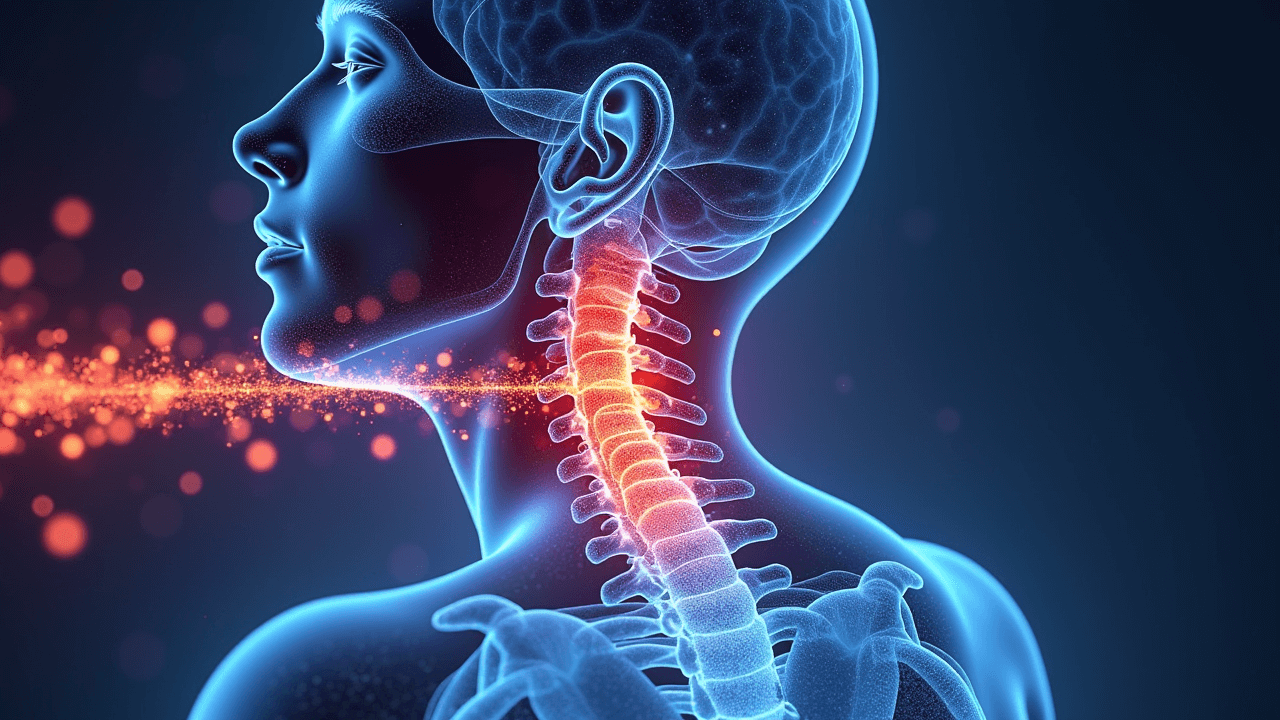Have you ever, like, stretched your neck after a long day and heard that crack? Like, what even is that? Yeah, we’re going on a deep dive today to figure out what that crunchy sound is. All the science behind it. Definitely, a lot of people wonder about that.
The Sound of Cracking Joints
You ever, like, stretch your neck after a long day and you hear that crack? Like, what even is that? Yeah, we’re going on a deep dive today to figure out what that crunchy sound is. All the science behind it. Definitely, a lot of people wonder about that.
Understanding the Crunchy Sound
The most upvoted explanation on this thread, and get this, compares our joints to like, tiny cans of soda. Really, that’s funny, I know. So the fluid in our joints apparently has gas bubbles in it, just like soda. It’s a surprisingly accurate analogy, actually.
The Science Behind Joint Cracking
Oh, really? When you think about it, when we stretch, those bubbles can actually collapse, and that’s what causes that sound, huh? So like gas is actually making the noise, yeah? They call it cavitation. Cavitation, yeah, okay, but that still seems kind of wild to me, like, I don’t know why, but it just seemed like it would be like buns or something, right?
Cavitation Explained
Well, it’s not just a guess. Scientists have actually used imaging and different techniques to see these bubbles forming and collapsing. Oh, wow. So they can actually see it. Yeah, it’s pretty remarkable. So it’s like a tiny little physics experiment happening in our bodies every time we stretch. Yeah, our bodies are constantly, like, interacting with physics, even on a really small level. And this is just one example that’s so cool, you know?
Why Some Joints Crack More Often
What I have always wondered, though, why is it that some joints you can crack like all the time, and others you can only crack, like, once in a while? Yeah, like, my knuckles are always down for a crack, right? But my elbows, like, never think about the soda again, right? When you open a soda, you get that initial, like, burst of gas, but then it takes time for those bubbles to, like, reform. Oh, okay. Joints are kind of the same way. After that initial pop, the gas needs time to redissolve back into the fluid. It’s called the refractory period. The refractory period.
The Refractory Period
So, like, if I wanted to be a professional knuckle cracker, I just have to perfect the timing of my refractory periods. Well, let’s maybe not make it a habit. Okay, fair. While cracking your knuckles every now and then is probably fine. There’s still so much we don’t know about it long term. Yeah, you’re right.
Endorphins and Joint Cracking
You know, speaking of things we don’t know a lot about, this physical therapist on Reddit mentioned something about endorphins. Oh, yeah. And I gotta say, it’s pretty interesting. Yeah, this is where the conversation gets interesting. We’re gonna get into some big questions about, like, pain relief and how our bodies respond to different therapies and stuff.
The Mystery of Endorphins
So this whole endorphin thing. It’s like a mystery novel or something, right? Like, what is the connection there between, like, popping your joints and your body, like, releasing these feel-good chemicals? It’s actually been a bit of a puzzle for researchers. We know that endorphins are released when we crack our joints, but, like, the exact reason why is still kind of up in the air. But endorphins are basically our natural painkillers, right? So does that explain why people feel better after they crack their knuckles or, like, their neck or whatever? That’s the main theory. Yeah, makes sense. Like, your body’s giving you a little reward for a good stretch or something. I like it. I’ll take it, yeah.
Endorphins and Chiropractic Care
But you know, this Reddit thread went into some other interesting stuff too, like chiropractic care. Oh, yeah. Is that related? Definitely. And this is where it gets important to understand how these endorphins actually work. Okay, so chiropractic adjustments, you know, where they like manipulate joints to make that cracking sound, those adjustments can release endorphins, so that’s why people feel good after they go to the chiropractor, exactly. But the physical therapist on Reddit made a really good point, like, while those adjustments can help you feel better, especially in the short term, because of the endorphins, they don’t always get to the root of the problem, you know? Oh, so it’s like putting a band-aid on a bigger issue? Yeah, exactly. I never thought about it that way. It’s really important to figure out what’s causing the problem in the first place. So you’re saying it might not be enough to just treat the symptoms, you have to fix the underlying issue. Exactly. It’s more complicated than just, like, cracking a joint.
The Complexity of Neck Cracking
Which, speaking of, I kind of want to bring this back to the neck, sure, since that’s kind of like our main focus here, makes sense. Because it’s not like we can just, like, crack our necks back into place, right? The neck is a lot more complex than that. It has a really important job. I mean, I guess I never thought about it, but yeah, it’s holding up our head all the time, right? And it lets us move our heads, like, all around. Plus, there’s a ton of important stuff in there, like nerves and blood vessels and things.
Different Sounds: Cavitation vs. Crepitus
So when we hear that cracking sound in our necks, is that always the same thing? Like the gas bubbles? Yeah, that’s what I was wondering. It seemed like some people were saying it could be other stuff too. It’s not always that simple. Okay, so like, what else could it be? Remember that person who was talking about the grinding sound in their neck? Yeah, that’s something that people mix up with cracking a lot, but it’s actually a totally different thing called crepitus. Crepitus, okay, I’m not gonna lie, that sounds kind of scary. It’s not necessarily a bad thing, but it’s definitely something to be aware of.
Understanding Crepitus
So, like, what’s the difference then, between crepitus and cavitation or whatever? So cavitation is all about those gas bubbles, but crepitus is when your tendons and ligaments are like, rubbing against your bones. And our necks have a lot of those, right? Like tendons and ligaments and stuff, for sure. I mean, think about all the ways you move your head during the day, up, down, side to side, exactly. And all of that involves muscles and tendons working together.
Should You Be Concerned?
Oh, that’s a good point. So like, if your neck is always moving, those tendons are constantly working, yeah, and sometimes they rub against the bones, which can cause that grinding sound. So should people be worried if they hear that, that grinding? It depends. I wouldn’t freak out or anything, especially if it’s like a one-time thing, okay? But if it happens all the time, or if it hurts, or if you can’t move your neck as much, then it’s a good idea to get it checked out. Okay, that makes sense.
Risks of Neck Cracking
You know, something else I saw on that Reddit thread that kind of freaked me out was about how cracking your neck could be dangerous, like there was a risk of something called artery dissection. Yeah, I saw that too. It’s definitely something to be cautious of, because that sounds really serious. It is. It’s when there’s a tear in, like, the lining of an artery in your neck, it can be really bad. Oh, wow. It’s very rare, though, but it has been linked to, like, really forceful neck movements, like, cracking your neck isn’t necessarily dangerous, but, like, don’t get too crazy with it, right? It’s best to just be aware of your body and what feels right. That’s good advice.
Everyday Habits Affecting Your Neck
You know, it’s funny that reading through all these comments from people worried about little neck cracking, it made me realize, like, what’s that we do so many other things in our everyday lives that are probably way worse for our necks. That’s a good point. Like we’re so focused on this one thing, right? But then we just completely ignore all the other habits we have that are causing strain on our necks all the time. I know it’s true. We tend to focus on these isolated things and don’t think about the bigger picture.
The Impact of Screen Time
Because I’m thinking about how much time I spend looking down at my phone, like all day, right? And that’s what the physical therapist was saying, like, too much screen time, yeah, not enough movement. Yeah. It puts a lot of stress on your joints, especially in your neck and upper back, which seems so backwards, right? Like you’d think that sitting still would be better for your joints. You’d think so, but he was saying that exercise is actually good for your joints, which makes sense when you really think about it, like, how well your joints need nutrients, right? Oh, yeah, duh. I wasn’t thinking about that.
The Importance of Joint Fluid
And those nutrients come from this fluid in your joints called joint fluid, okay? And that fluid, it like, lubricates your joints and keeps them moving smoothly and stuff, and the cartilage, that’s what stops the bones from grinding together exactly. So the fluid keeps the cartilage healthy, gotcha. But here’s the thing, when we move our bodies, it helps to circulate that fluid. Oh, that’s so interesting. So exercise is literally like giving your joints a refreshing drink of water. I love that. I’m gonna use that analogy because it’s so true. By moving around, we’re not just like working our muscles, but we’re actually helping our joints too. It’s like a two-for-one deal. You’re strengthening and nourishing at the same time.
Making Positive Changes
I know I need to move more. Oh, you know, honestly, what surprised me most about that whole Reddit thread was how much we just do not realize, how much our daily habits affect our bodies. That’s a really good point. It’s like death by 1000 cuts or something. You don’t even realize it’s happening. Yeah, it’s the little things you do over and over again that really add up over time, exactly. So if you’re always on your phone, always, like, hunched over your computer, those little things can turn into big problems down the line. That’s true. My posture is the worst. It’s something to be mindful of throughout the day, you know?
Daily Posture Tips
So it’s not enough to just, like, go to the gym a couple of times a week. It’s about making little changes throughout the day, like how I’m sitting right now, or how I walk and stuff, exactly, just being aware of your body and how you’re moving. I feel like this whole conversation has really changed my perspective. You know, like I used to think that cracking sound in my neck was like the main thing, yeah, but it’s really just one small part of, like, a much bigger picture, right? It’s all connected. It’s like our bodies are trying to tell us something, they are, and we just need to, like, listen. Listen to your body.
Staying Active for Joint Health
So I think that’s a good place to leave it for today. So we’ve gone pretty deep on this whole neck cracking thing. Yeah, we’ve covered a lot of ground from those little gas bubbles to endorphins and even, like, chiropractic care. It’s amazing how much there is to learn about something we do without even thinking. I know, right? Like I always thought it was just, like, a simple pop, but it turns out our bodies are way more complicated than that, way more complicated. There are so many different factors at play, and we can’t forget about how much our daily habits affect our bodies too, right? Like that physical therapist on Reddit was saying. If we’re constantly looking down at our phones or sitting in weird positions, which we all do, let’s be honest, exactly. All of that takes a toll, even if we don’t realize it. It’s like we’re setting ourselves up for problems down the road. Exactly. So many people wait until they’re in pain to start thinking about their posture and how they move, when really we should be thinking about it all the time, all the time. Little changes throughout the day can make a huge difference, like what kind of things?
Practical Tips for Better Posture
Well, for starters, being mindful of how you’re sitting right now, okay? So shoulders back, exactly, not hunched over like I usually am. And then when you’re walking, standing in line, whatever, just like a quick posture check can make a big difference. Okay, I can do that. And then, of course, there’s exercise. Oh, yeah, we can’t forget about exercise, although I personally try to forget about it as often as possible. I get it. But honestly, even just a little bit of movement each day can do wonders for your joints. It’s true, I always feel better after I actually work out, right? And it doesn’t have to be anything crazy, just get your heart rate up a bit, get those joints moving.
Embracing Movement
So we’ve talked about those gas bubbles, the endorphins, posture, exercise. Is there anything else we missed? I think we covered the most important stuff. But you know what’s funny about this whole thing? Right? There’s still so much we don’t know, really. But, like, science has come so far, it has, but our bodies are incredibly complex, and there are always new discoveries being made. So even though we’ve been on this whole deep dive into neck cracking, there are still mysteries out there. Definitely, like, remember that question from the Reddit thread about why cracking a sore finger sometimes helps? Yeah, that one really tripped me up. We don’t have a definitive answer for that yet, but it just goes to show there’s always more to learn. That’s true. I guess that’s what makes all this so interesting, exactly. It’s a never-ending journey of discovery. I feel like I need to go stretch now. All this talking about neck has got me feeling some kind of way. Me too. And you know what? I’m not even gonna worry about whether it cracks or not. That’s the right attitude, as long as it doesn’t hurt, we’re good. Words to live by.
Final Thoughts
Well, this has been fascinating. Thanks for joining me on this deep dive into the world of neck cracking. Of course, anytime, and to our listeners, thanks for coming along for the ride. Remember to be mindful of your bodies and until next time, happy exploring.
FAQ
What causes the cracking sound in your neck?
The cracking sound is caused by gas bubbles in the joint fluid collapsing, a process known as cavitation.
Is neck cracking dangerous?
Neck cracking isn’t necessarily dangerous, but forceful movements can lead to serious issues like artery dissection, although it’s very rare.
Why do some joints crack more often than others?
Some joints crack more often because after the initial pop, gas needs time to redissolve back into the fluid, known as the refractory period.
Do endorphins play a role in joint cracking?
Yes, when you crack your joints, your body releases endorphins, which are natural painkillers that make you feel better.
How can daily habits affect neck health?
Daily habits like excessive screen time and poor posture can strain your neck, while regular movement and exercise help keep joints healthy by circulating joint fluid.
Your Hosts

Alex & Maria
Join Alex Thompson and Maria Davis as they navigate the fascinating world of knowledge. With their combined expertise and passion for learning, they simplify the complex and make every episode a journey worth taking.

